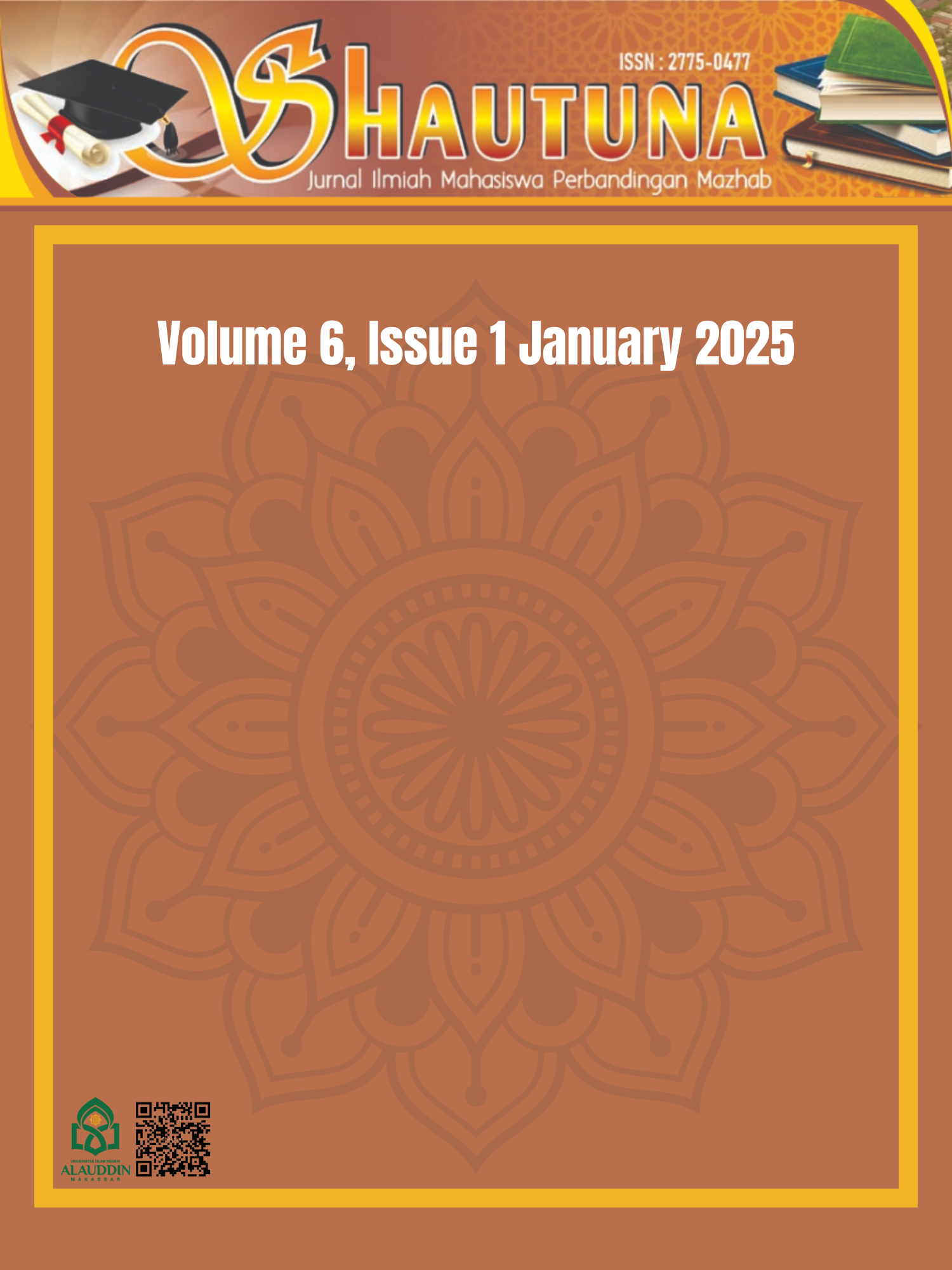Euthanasia and Patient Rights in Islamic Legal Philosophy
A Critical Study of Palliative Care Practices in Muslim Countries
DOI:
https://doi.org/10.24252/shautuna.v6i1.48646Keywords:
Euthanasia, Patient Rights, Islamic Legal Philosophy, Care PracticesAbstract
Euthanasia is one of the ethical issues that continues to be debated in various countries, including Indonesia. This dilemma is not only experienced by doctors and legal practitioners, but also by religious circles who are trying to understand the position of religious teachings on this practice. The subject of this research discusses euthanasia and Patient Rights from the perspective of Islamic Philosophy of Law. The main purpose of this study is to examine the concept of euthanasia in the perspective of Islamic Philosophy, compare it with the perspective of human rights, and explore how Islamic law responds to this phenomenon. This study uses a normative approach with a library research method. This method is carried out by collecting and analyzing data from various literary sources, such as Fiqh books, Qur'an interpretations, Hadiths, scientific journals, and related legal regulations. The data collected is then analyzed qualitatively to draw conclusions that are in accordance with the principles of Islamic law. The results of the research show that the concept of euthanasia formulated by experts is actually prohibited in the Quran and Hadith. For example, in the Qur'an in QS. Al An'am verse 151: "And do not kill a soul that Allah has forbidden (to kill) except for the right reason." Killing here is defined as killing by any means, including killing with the help of others, such as the concept of active euthanasia. Meanwhile, from the point of view of human rights, euthanasia is an effort to eliminate the right to human life, because the essence of euthanasia itself is to eliminate human life on the grounds that it will harm others. However, in certain cases, the termination of medical procedures that do not provide benefits (passive euthanasia) may be allowed under certain conditions.
References
Asma, Noor. “Euthanasia Dan Prospeksi Pengeturannya Dalam Hukum Islam Dan Hukum Pidana.” Jurnal Al Himayah 2, no. 2 (2018): 167–90. https://journal.iaingorontalo.ac.id/index.php/ah/article/view/569.
Azizah, Noer Azizah, Mila Rosyidah, Badrussholeh Badrussholeh, and Daman Huri. “Hukum Euthanasia Menurut Hukum Islam Dan Hukum Indonesia.” Komparatif: Jurnal Perbandingan Hukum Dan Pemikiran Islam 1, no. 2 (December 12, 2021): 124–40. https://doi.org/10.15642/komparatif.v1i2.1926.
Downloads
Published
How to Cite
Issue
Section
License
Copyright (c) 2025 Patimah Halim, Asrul Asrul, Muhammad Shuhufi

This work is licensed under a Creative Commons Attribution 4.0 International License.









